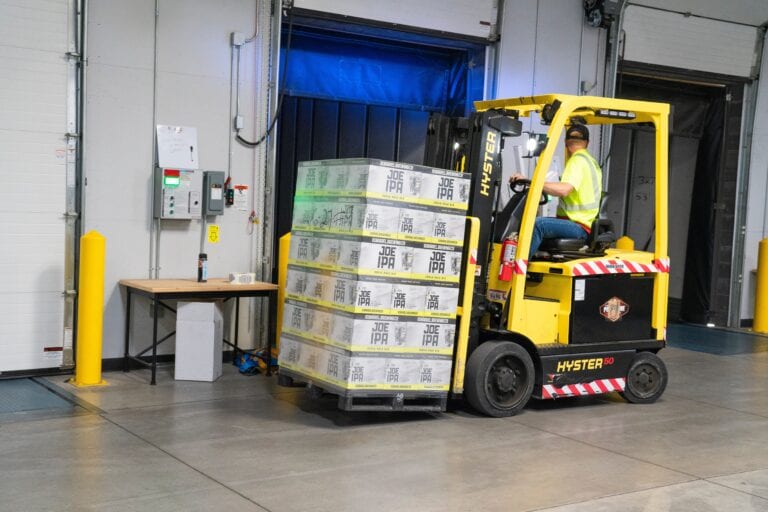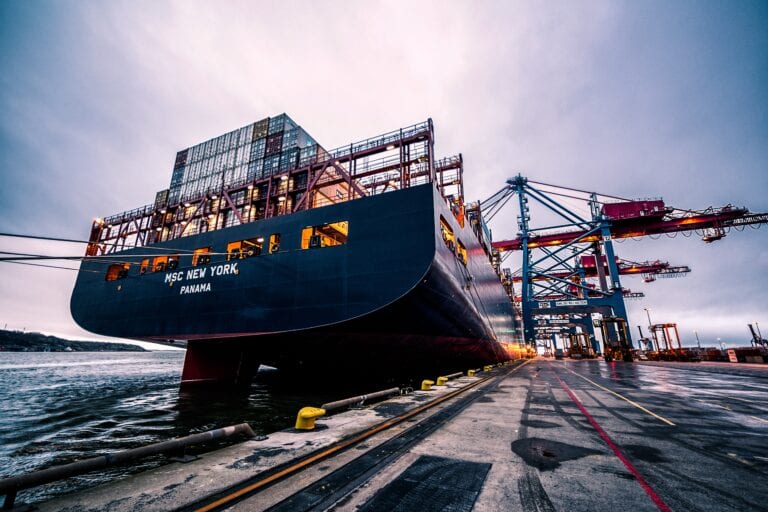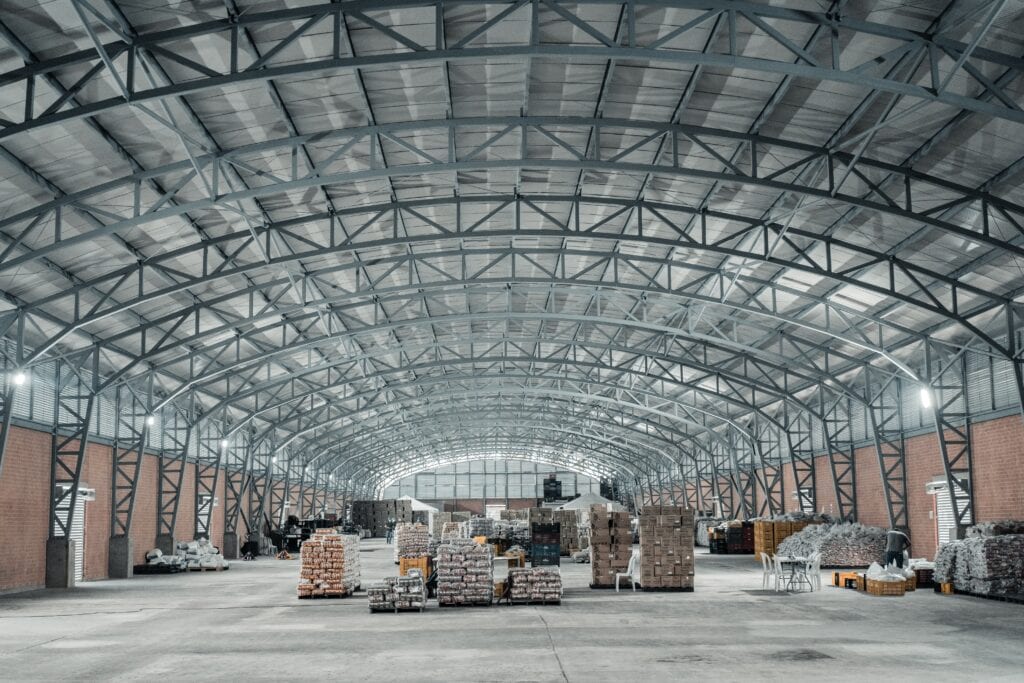What is Third-Party Logistics?
Third-Party Logistics, also known as 3PL, is a business model in which organisations outsource their logistics services to Third-Party Logistics providers to fulfil their requirement for inventory management, distribution, and other supply chain needs.
The traditional business model of in-house handling of most or all operations isn’t always the most constructive. Focusing on all the activities simultaneously risks perfection and may compromise the quality of the core activities. This can be particularly inapt for small eCommerce businesses that don’t have enough resources to carry out all the tasks on their own efficiently, and even for larger enterprises that might profit from outsourcing logistics activities. Third-party logistics enables them to partner with professionals on such services, allowing them to focus on growth, marketing, and customer satisfaction.
How do Third-Party Logistics work?
Usually, Third-party logistics or 3PL providers organise inbound and outbound transportation and warehousing for their clients. Most 3PL companies either own or lease the warehouse space they provide to their clients and contract with other freight and shipping carriers.
‘Third-party’ implies outsourcing of complete cycle of order fulfilment. The client company doesn’t own or maintain the warehouse. Rather, it hires a 3PL provider that provides shelf space for its products in its massive warehouse that stores products for many such clients. Warehouse employees collect the products and deposit them into inventory. Then, they select items from shelves to fill orders and pack them soundly for shipping. The 3PL providers also work with several carriers to deliver orders for their clients.

Third-party logistics warehouses are developed to maximise efficiency and speed so that they can handle the extra volume as the client company grows and it can expand its capacity. A 3PL can devise ways to reduce delivery times and shipping costs. So, when a company employs a 3PL company for its eCommerce fulfilment, it gets the advantage of experience and focus.
Activities under Third-Party Logistics
3PL Providers perform numerous functions. Let us now look at a few of them-
- Shipping and Transportation: Generally, these companies call attention to technology, often integrated freight management services, or a Transportation Management System (TMS). These technologies were engineered to increase efficiency and automate routine and tedious tasks, such as accounting and freight payment.
- Warehousing: 3PL providers support a company’s warehousing procedures and specialise in storing goods reliably. Several warehouse 3PL providers provide customisable ways to handle storage.
- Distribution: Many 3PL organisations also offer various distribution and wholesale services, including outbound order fulfilment, custom labelling, picking and packing, and manufacturin
- Customs Clearance: Finding reliable and consistent freight brokerage can be a difficult task for most companies. But working with 3PL providers can smoothen out the process by eliminating the middlemen.
Types of 3PL Providers

As the concept of logistics has grown over the years, so have the services provided by logistics providers. Presently, there are four common types of 3PL providers-
- Standard 3PL Providers: A Standard 3PL provider is the most basic type of a 3PL provider. These companies offer minimal logistics services like pick and pack, warehousing, and distribution per the client’s requests. Because their services are not very complex, this option doesn’t entail heavy costs.
- Service Developer 3PL: In addition to the primary logistics services offered at the standard level, a Service Developer 3PL provider offers advanced value-added services like IT infrastructure and management and also extends safety and reliable value-additions such as security, compliance management, and shipment tracking. This signifies that it can further ensure the delivery of packages is safe and on time.
- Customer Adapter 3PL: A Customer Adapter 3PL provider improves the logistics exponentially but does not develop a new service. It essentially takes over complete control of the client’s logistics activities from beginning to end – even providing rate maintenance and negotiation with carriers. It provides its clients with access to technology, for example, a Transportation Management System (TMS), Warehousing Management Systems (WMS), Supply Chain Event Management (SCEM), etc., which provides insight into the processes and enables them to customise shipments as needed, but can remain hands-off if they so desire.
- Customer Developer 3PL: A Customer developer 3PL provider not only inherits the logistics operation of its partner company but also adapts its own systems. This implies that the 3PL becomes the entire logistics department instead of simply offering services. These providers might have few customers, but they perform extensive and intricate tasks for them. Hiring a 3PL customer developer is quite expensive because of the heavy workload, personnel, and responsibility involved.
A company shall select the most suitable type of Third-Party Logistics provider as per its specific needs and budget and enjoy the specialised services.
Advantages of Third-Party Logistics
Using a 3PL provider offers many benefits. The most significant is that by outsourcing these logistics, the company can pay attention to other aspects of its business. Let us discuss some of these advantages-
- Focus: Outsourcing of logistics allows companies with restricted logistics expertise to focus on their business’s core aspects, such as product development, marketing, sales, and growth, instead of getting involved in such non-core but critical functions. This means that companies can enjoy the benefits of professional logistics knowledge without diverting attention away from their more important tasks.
- Cost and time reduction: Third-Party Logistics providers are expert in logistics and thus will have a more extensive network than a regular company’s supply chain. They will probably have more significant influence during negotiations, exclusive relationships within the logistics industry and will also be able to provide higher volume discounts to clients. The IT systems and the equipment of 3PL providers are regularly updated and adapted to match the needs of their customers. All of this may result in savings in overhead costs. By employing a 3PL provider in supply chain management, a company can also avoid making colossal infrastructure investments since it can provide warehouse space, transportation, personnel and tracking technology, among other things.
- Flexibility: Third-party logistics providers can give greater flexibility for geographic distribution and offer various services than client companies could arrange for themselves. Many 3PL providers derive the benefit of zone skipping to prospective clients, which is a method of freight consolidation in which companies can consolidate their parcels and ship them across several regions. Since it reduces the distance between products to be shipped and customers, it results in lower shipping costs. Moreover, this allows companies to predictably and accurately manage their resources.
- Scalability: Third-Party Logistics provider services make it easy to expand businesses into new markets and areas, including emerging economies, without committing to any substantial investments like own warehousing space or staff. By acquiring a 3PL, a business can improve customer service, leverage new supply chains, and access new markets that it hasn’t accessed before. In addition, warehouses and distribution centres from 3PL providers, who usually incorporated the requisite security and compliance procedures into their service offerings, make such expansion more accessible than ever.
Disadvantages of Third-Party Logistics
A 3PL isn’t viable for every enterprise. Despite their various benefits, using third-party logistics providers can come with its own set of drawbacks, some of which are explained below.
- Lesser Control: When a company chooses to go with a Third-Party Logistics provider, it is bound to give up a certain amount of control over the logistics operations. Such an arrangement requires the company to trust the 3PL provider to meet the decided agreements. That calls for a major leap of faith for functions that can directly affect customer satisfaction. The client can consistently impart and talk with the partner, yet it isn’t quite possible to have genuine and precise oversight. Furthermore, sharing certain proprietary information like sourcing, order information, etc., with a third party increases the possibility of a data breach.
- Gap in understanding: If the client operates in a highly regulated industry or has particular needs (temperature-controlled delivery, cold storage, etc.), a Third-Party Logistics provider may not be suitable. Moreover, 3PLs often cater to hundreds or even thousands of customers and may not give the undivided attention required by a client. Hence, it’s crucial to choose a 3PL provider that completely understands your business, its goals, and how efficient logistics can enable those goals.
- Reverse logistics: Generally, selling products online rather than in a physical retail environment adds extra costs when it comes to processing returns, i.e. reverse logistics. The most significant hurdle manufacturers have to face is handing over the products to a 3PL and believing that they will take care of all the hassles, even returns.
- Lesser access to own product: The Third-Party Logistics provider may position the products far away from the client’s location. This would be inconvenient if the client runs into quality control issues or needs to physically inspect its stock for any reason.
Future of 3PL Industry

The Third-Party Logistics industry is undergoing a huge transition. Currently participating in a highly fragmented, high growth market, 3PL providers will soon be swept up in a massive wave of consolidations. The following three factors shall govern this trend–
- Increased demand for lead logistics providers: Modern-day Third-Party Logistics providers have come to light recently due to the deregulation of transportation in the 1980s and the emphasis on “core competencies” in the 1990s. This has led to the take-off of outsourcing. Over the last decade, the 3PL industry has grown at a rate higher than 20 per cent per year. It has been forecast by many experts that the logistics provider industry may continue to grow at a rate of 15–20 per cent annually.
- New Game-Changing Technologies: The second significant element driving consolidation is technology. A rising number of shippers are coming to depend on their Third-Party Logistics providers for advanced and expensive technology solutions. Many cutting-edge 3PLs specialise in studying new technologies and using them to bring significant value to shippers. Users largely count on their logistics providers for expertise in complicated technologies such as Warehousing Management Systems (WMS), Transportation Management Systems (TMS), Supply Chain Event Management (SCEM), and International Trade Logistics Systems (ITLS), among others.
- Increase in rich logistics acquirers: The third element of consolidation is the surfacing of cash-rich buyers looking for logistics targets. Over the last few years, we have witnessed such notable acquisitions as Deutsche Post buying Danzas for $1.2 billion, Kuehne & Nagel buying USCO Logistics for $400 million, TPG buying CTI for $650 million, etc. Such major acquisitions will only continue. In a swiftly evolving marketplace, time can be more valuable than money. Buyers will continue to be enticed by the ability to procure new customers, technologies, geographies, services, and talented managers, which they can gain more quickly through acquisition than by organic growth.
Bottom Line
Third-Party Logistics or 3PL is essentially outsourcing a company’s logistics activities to a third party with expertise in this area. With the proper infrastructure, network, and specialised knowledge, 3PL providers can be exceptionally useful to their clients by providing them with the benefits of scalability, flexibility, reduced costs and allowing them to take care of their core operations.
Related posts
- 10 Best Third-Party Logistics (3PL) Companies In Chennai
- Top 10 Third Party Logistics (3PL) Companies In Mumbai [2024]
- Guide To 3PL In Reverse Logistics
- 3PL vs In-House Logistics: 6 Key Differences
- 10 Practical Tips To Reduce Warehouse Costs
- How To Implement A Successful 3PL Partnership
- 8 Best Third-Party Logistics (3PL) Companies In Delhi
- Key Types Of 3PL Service Providers
- Top 11 3PL Companies In Pune
- 10 Best 3PL Companies In Rajkot In 2025
- 6 Challenges Faced By Transportation Companies In India
- Top 10 Shipping Companies In Mumbai
- 10 Best Third Party Logistics (3PL) Companies In Bangalore [2024]
